NORTH EAST & YORKSHIRE NET ZERO HUB COMMUNITY ENERGY WORKSTREAM - ENERGY AUDITS
TEES VALLEY COMBINED AUTHORITY
BACKGROUND
The concept behind community energy is to bring individuals together to collectively take action, manage energy use or generate low carbon heat and power. These energy projects are often delivered by groups or organisations and can result in hugely positive outcomes for the local community.
As part of the process, community energy groups need to commission Energy Audits to enable them to complete the pre-feasibility stage of works. To do this they require financial assistance, and this is where the Community Energy Fund is invaluable.
Having successfully applied for this funding as part of the North East & Yorkshire Net Zero Hub Community Energy Workstream, Tees Valley Combined Authority (TVCA) were able to commission d3associates to prepare Energy Audits for seven community buildings in the region.
OUTCOME
Most of the selected sites were church buildings based in Harrogate, Scarborough and Knaresborough. There was also a community farm in North Yorkshire that included a farm shop, packing depot and bakery.
Our energy team’s work began with reviewing all the available information about the buildings and highlighting any missing data. Key points included understanding the building’s usage, assessing the building fabric and current insulation properties.
A technical review of the mechanical and electrical heating systems and controls was initiated alongside an analysis of energy use and associated carbon emissions with comparison to recognised benchmarks.
Surveys were organised for each site to assist with identification of potential energy saving measures and to consider appropriate low carbon technologies for the provision of heat. Consideration was also given to energy generation and storage options.
With all necessary information collated, economic modelling commenced, allowing us to financially assess all the options. This included the preparation of a ‘waterfall chart’ to illustrate the effectiveness of decarbonisation measures.
All the above information, for the initial seven buildings, was presented in individual Energy Audits which were then followed up with an online presentation to the group which also provided the opportunity of a question and answer session.
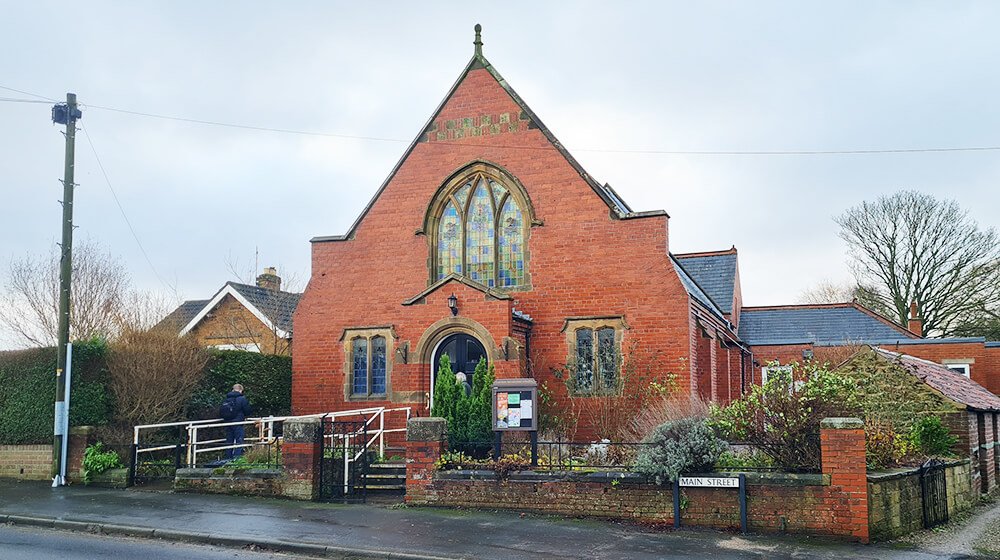
Cayton Methodist Church, Nr Scarborough
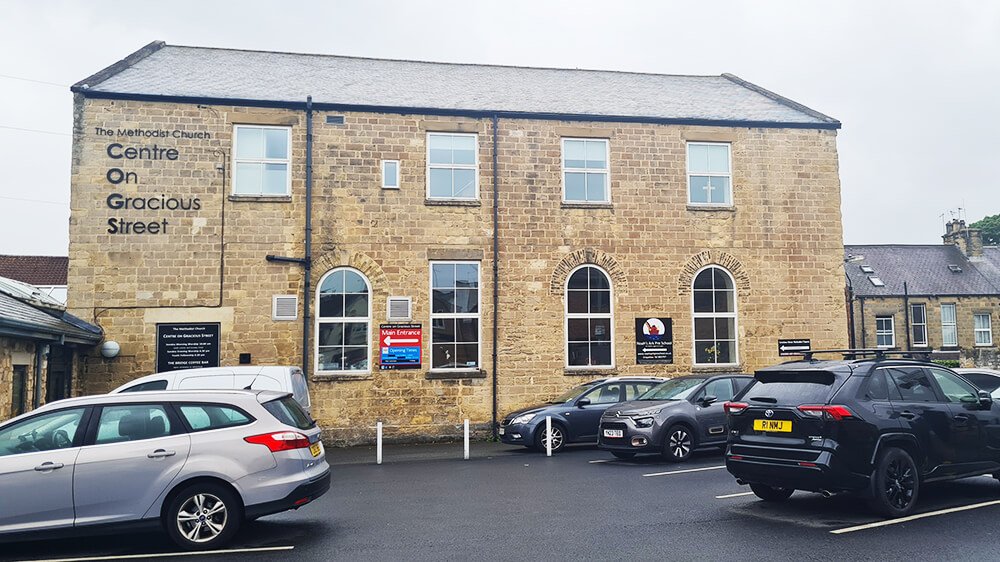
Gracious St Methodist Church, Knaresborough
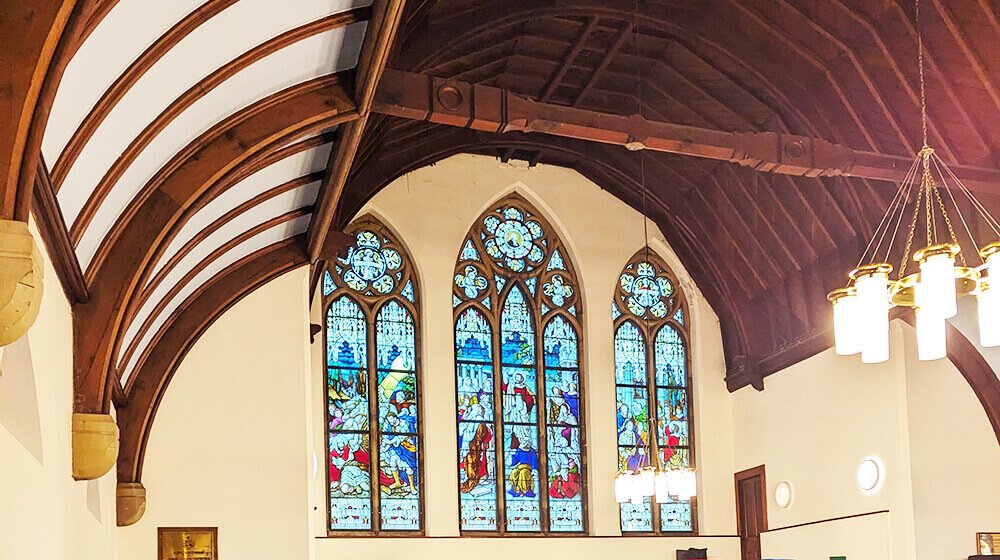
Trinity Methodist Church, Harrogate
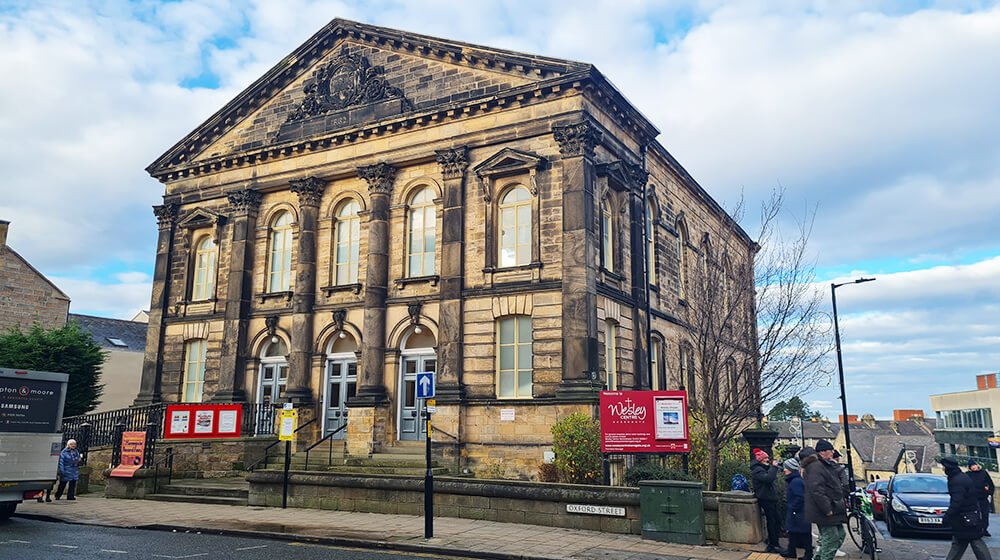
Wesley Chapel Methodist Church, Harrogate
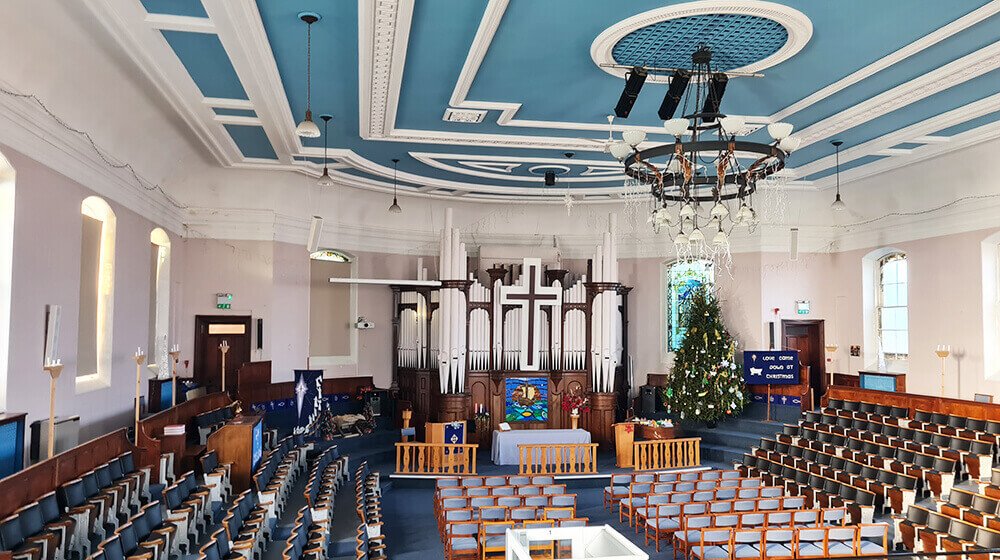
Westborough Methodist Church, Scarborough

Wreyfield Drive Methodist Church, Scarborough
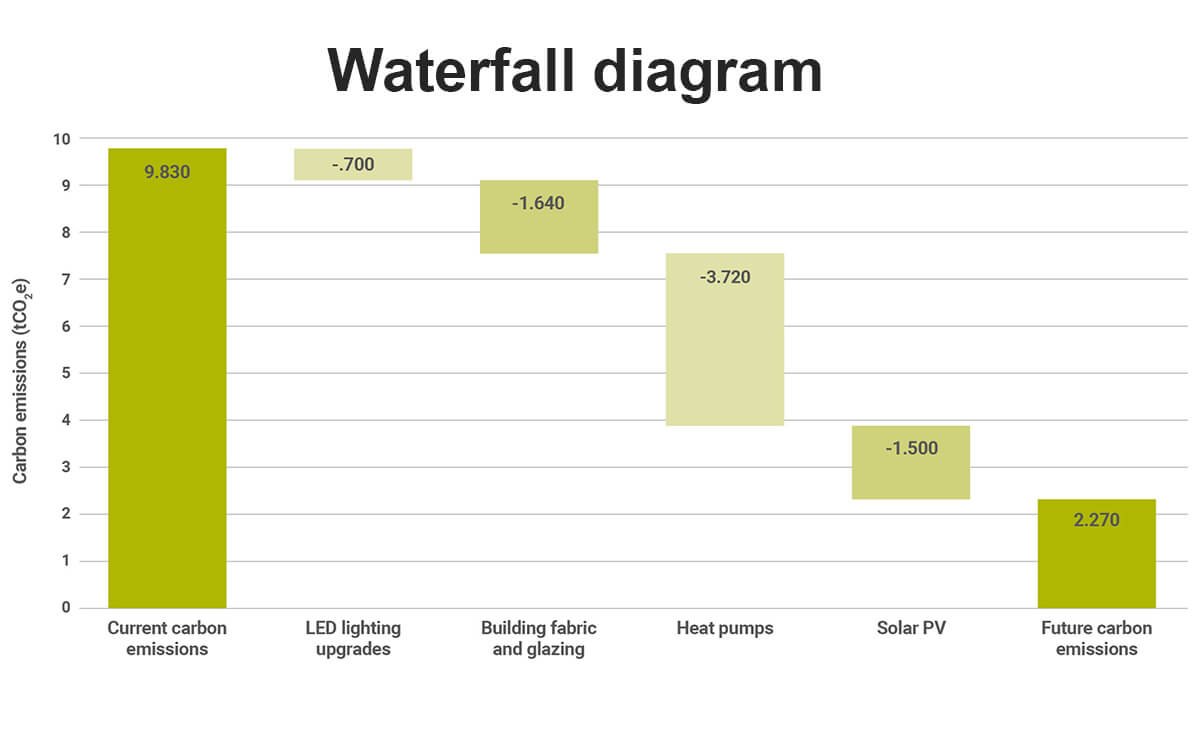
Typical waterfall diagram to show potential reduction in carbon emissions
